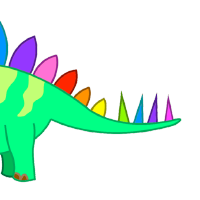00:00:08.350
Welcome, everyone! I'm excited to be here today to share my journey of transitioning into software engineering.
00:00:15.939
A little over a year ago, I had no coding experience at all, and today I work as a software engineer at Verve. My name is Shana Moore, and I’m here to explain how I made this career change without a technical degree.
00:00:26.720
Thank you all for coming. I'm truly excited about this opportunity! Let me share some background about myself. I graduated from college in 2009 with degrees in Human Development and Spanish Literature.
00:00:35.630
Unfortunately, during that time, America was facing a significant recession, making it extremely difficult to find a job. I ended up taking whatever job I could find, which was in administrative support, and I remained in that role for about seven years. No, it wasn’t my dream career, but I don’t regret it because that’s when I accidentally discovered the power of coding.
00:01:10.040
For example, I was astonished to learn that you could automate processes that would take a whole day if done manually. I was instantly hooked and started developing an interest in web development, primarily as a result of my YouTube channel, which has always been a hobby. I wanted to create a website from scratch, and that’s when I began teaching myself HTML, CSS, and JavaScript to build a site that would complement my channel.
00:01:36.890
During this time, my interest in coding grew, especially after I was laid off from my job. This unexpected event was a blessing in disguise; it forced me out of my comfort zone and into a situation where I had to get my life together, leading to a significant career change.
00:02:07.330
Today, as I share my story, I will offer six tips that hope to inspire you or anyone interested in making a similar career change. The first thing I did when I became interested in coding was to put myself into the community. The Ruby community has been incredibly supportive.
00:02:47.560
In the first picture, I’m standing with a group at Rails Camp in California. I got involved even though I didn’t know much at the time. I had a neighbor who was a Ruby developer and one of the organizers of Rails Camp West, who kindly invited me. I accepted and ended up having an amazing time meeting developers from around the world and hearing their stories.
00:03:34.220
I met incredible people there, and it was the first time I truly felt inspired. Upon returning home, I knew I wanted to learn Ruby. In the second photo, you can see me at my first Ruby Conference, posing with Matt, the creator of Ruby. Until attending the conference, I didn’t really know what Ruby was until I plugged into the community.
00:04:08.940
I applied for the scholarship opportunity program, which allowed me to attend the camp in Texas for free and get paired with a mentor for that weekend. I am still in touch with that mentor today. The takeaway from this experience is that even if you feel like you know nothing, getting involved in the community can lead to amazing connections, support, and friendships that will help you throughout your journey.
00:04:44.520
Having a network is especially helpful when you start looking for jobs, which brings me to my second tip: find support. It’s important to be honest with yourself about how you learn and to invest in the tools that support your learning.
00:05:15.830
When I was on this path, I still had a full-time job while paying off my first degree, so I wasn’t ready to quit my job or take out another loan for a four-year computer science degree. Instead, I invested in various online learning platforms such as Codecademy, Treehouse, Code School, and others. I also read many books, listened to podcasts, and participated in free social media discussions such as Code Newbies.
00:06:07.610
Another important aspect of finding support is to connect with a community. I attended numerous meetups until I felt at home with a group called Girl Develop It. I found a judgment-free zone filled with diverse men and women supporting each other. As an African American woman, I often felt isolated at tech events, so finding this community was comforting.
00:07:08.000
While Girl Develop It may not be international yet, there are similar groups like Women Who Code. Or if you can’t find a suitable organization, consider starting your own. Building a support system is crucial because learning to code can be challenging. You need people to lean on when you face obstacles.
00:07:44.000
If there's one piece of advice I want you to take away today, it is this: do not give up. Positive thinking is crucial, and it’s undoubtedly challenging. I often compare it to being your best friend's cheerleader. Think about your best friend running a marathon. Would you criticize them for not being fast enough or tell them to quit? No! You wouldn't. Always remember to treat yourself with the same kindness.
00:08:56.330
Your internal dialogue is powerful. If you tell yourself you can’t do something, guess what? You won't be able to. To emphasize the importance of this mindset, I'd like to introduce the dichotomy of fixed versus growth mindsets, popularized by Stanford psychologist Carol Dweck. In a fixed mindset, failure is perceived as the end, while in a growth mindset, failure is seen as an opportunity to learn.
00:09:50.650
Those with a fixed mindset may feel their talents and intelligence are fixed traits, while those with a growth mindset are more open to learning from challenges and see them as part of their journey.
00:10:15.660
If you identify with the fixed mindset, it’s not too late to shift your internal dialogue. Replace negative thoughts with positive affirmations. You have the power to choose your perspective. Following my first two tips, if you’ve built a support system, you can reach out to them when you need assistance.
00:10:51.930
The fourth tip is practical: build projects and build a lot of them. As new programmers, it can feel overwhelming with all the programming languages and technologies available. My suggestion is to pick one language, become proficient, and build with it. For example, learning Ruby can create a strong foundation for learning other languages later on.
00:11:55.050
Completing projects from start to finish, like deploying a website, will provide valuable experience and challenges that prepare you for job interviews. You’ll have tangible work to show and discuss during interviews.
00:12:33.660
My fifth tip is to be different or stand out. It’s essential to be yourself but also to go above and beyond to be creative and distinguish yourself from the crowd. For instance, consider blogging about your learning journey. Not only does it reinforce your knowledge, but it also contributes to the community. I once received a job interview request as a result of a blog post.
00:12:59.540
If you’re in job interview mode, working on whiteboarding challenges after your interviews can be beneficial. Rather than dwelling on failed interviews, focus on improving and send your interviewers your solutions with enthusiasm. It demonstrates your passion and can lead to unexpected opportunities, like internships.
00:14:00.480
Lastly, when I got hired, I leveraged my YouTube skills to create a screencast explaining my code challenge step by step. The feedback I received was overwhelmingly positive, showing that such creative approaches can set you apart. Just make sure to keep your video private!
00:15:22.800
Don't forget to pay it forward. Share your story to inspire others who may be considering a similar path. Volunteer, mentor, or teach; activities like these not only help others learn but reinforce your knowledge. You can also include such experiences on your resume.
00:15:54.840
Participating in talks can lead to networking opportunities and amazing experiences, like speaking at RubyConf Australia. Sharing this journey with my mom, who is sitting here, makes it all the more special.
00:16:47.220
As a recap, my tips from experience are: get involved, find support, don’t give up, build stuff, be yourself, and pay it forward. Most importantly, never give up. Thank you!



































